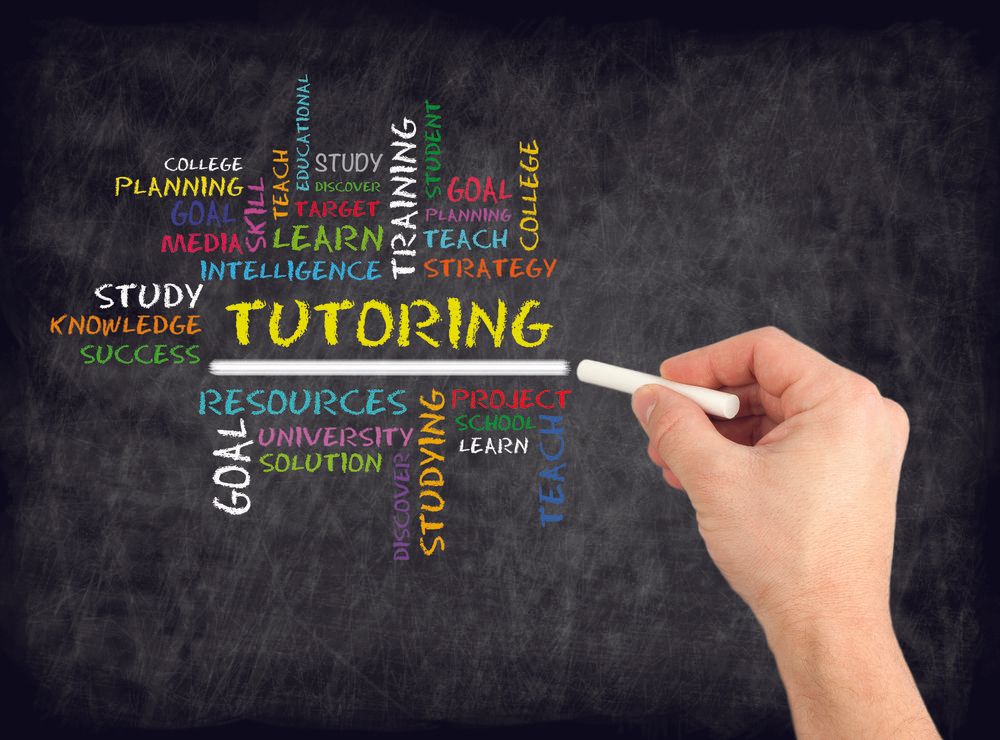8 BENEFITS OF PRIVATE TUITION FOR STUDENTS
Tom Foster • October 23, 2019
Courtesy of The Educator...
Private tutoring is becoming increasingly popular, which is hardly surprising as it is particularly effective in improving not only a student’s academic grades, but also their practical understanding of wide range of subjects. There are many reasons why receiving tuition can have such a positive impact on a student’s abilities. Here are 8 benefits of private tuition for students.
1. CUSTOMISED LESSONS
One of the biggest advantages of private tuition is that lessons can easily be customised to suit each student. Whereas in school a student may be at a disadvantage, if, for example they work at a different pace to the rest of the class, or need to focus more attention on a specific aspect of the course, private tuition largely negates these problems. Learners will benefit from the fact that a tutor can adjust the pace, focus and goals of a lesson depending on the needs and abilities of the student, meaning that learning efficiency will be maximised. This is an especially important point to note for any students that have learning disorders, such as dyslexia or dyspraxia. A good tutor will be able to take this into account and be a great benefit to a student.
2. ONE-TO-ONE TEACHING, MORE TIME AND ATTENTION
Another huge positive gained from private tuition is the amount of time a student will receive from a teacher. As private tuition is usually on a one-to-one basis, teachers can focus their attention fully on a student. This is obviously a huge advantage compared classes of twenty to thirty pupils where a teacher’s time is divided and individuals can very easily become lost in the crowd. With less distractions, the tutor is better able to appreciate and work on a student’s weak points, making the whole learning process more effective.
3. CAN CHOOSE THE RIGHT TEACHER
Students will respond better to a teacher that is suited to them, in terms of both temperament and learning style. Unlike school, where students generally have very little, if any, choice in regards to who their teachers are, opting for private tuition does allow the student or their parents to pick a tutor that they feel comfortable with. As there is such a wide range of tutors available, each with their own strengths, specialities and learning styles, there is bound to be a tutor that is well suited to each and every student. Finding the right tutor, that can engage and inspire, can really make a big difference for the learner.
4. INCREASED CONFIDENCE
As private tuition is usually one-to-one, tutors and students are able to work much more closely and develop stronger relationships than would otherwise be possible in a larger class. The impact that this can have on a student is profound, as teachers will be able to get to know their students better, and so will find it easier to spot potential problems and give them assistance. For shy students, being in a learning environment with less people can also help them to express themselves, as they are under less pressure from their peers.
5. HELP WITH HOMEWORK AND TEST PRACTICE
Homework can often be a boring, and sometimes daunting, experience for students. Left to their own devices, many will just work through it without really engaging in the subject, and it becomes more of a box ticking exercise. Having a tutor who is able to keep the student focussed and interested will ensure that the homework is not only completed to a higher standard, but, more importantly, is more effective in terms of what a student is able to gain from it. Similarly, tutors can be especially effective in regards to test preparation. The advice and assistance that they can provide ranges from the structuring of revision, to troubleshooting weak points in the student’s knowledge. As such, a tutor’s help can prove invaluable.
6. MORE INTERESTING MATERIALS AND FORM OF STUDY
School lessons can often be quite rigid in their learning style, as they often have very set goals and a strong reliance on text books. Private classes usually have a less formal approach though, and so are more flexible as a result. This leaves tutors free to use whichever materials and learning styles which they deem most useful. Thus, a student will often be faced with materials that they would not encounter in school. These adaptations can be a great help, as they prevent students from becoming bored whilst at the same time pushing their boundaries and providing them with a challenge.
7. FLEXIBLE AND CONVENIENT
As a mode of teaching, private tutoring is becoming increasingly flexible and convenient. Tutors will often be able come to you, which saves a lot of time for both students and parents in regards to travel. Organising a suitable timetable is also easily achievable, allowing sessions to be structured around school or other extra-curricular activities. With the rise and growth of online tutoring, this has become even easier, allowing lessons to occur where and when you want.
8. SAVES TIME AND EFFORT
Although it is great if parents are able to get actively involved with their children’s learning, this is not always a practical option. Busy schedules can limit the time you are able to spend each week helping out with homework. In addition, as children become older and their studies become more advanced, parents may not always be able to provide suitable assistance. In both these cases, having a private tutor who has both the time and skills necessary can be a great help, benefitting both students and parents alike.

Deciding whether to pay for a private tutor is a decision many parents are making. In an article that first appeared in the Daily Telegraph 'Independent Schools' supplement on Saturday 16 March 2013, Nick Morrison explores the issue. When you are paying upwards of £15,000 a year to have your child privately educated, the prospect of forking out for extra tuition may not sit well with you. But that is exactly what seems to be happening as an increasing number of parents look to “top-up” their child’s already expensive education with a private tutor. According to managing director Nevil Chiles of Kensington & Chelsea Tutors, around 60-70 per cent of its students are from private schools, and numbers have been rising ever since the west London agency was established 10 years ago. The agency’s students tend to fall into two groups, says Chiles. There are those who are struggling with a particular subject and benefit from one-to-one tuition. This does not necessarily imply a problem with the school, as even with the smaller classes of an independent establishment, teachers cannot always give all their pupils the attention they need. Or it may be that a different approach can provide that “eureka” moment, when it starts to make sense. The second group consists of students who are already excelling but whose parents want to ensure they go on to their preferred school or university. For both groups, extra tuition is particularly popular in the run-up to exams, with maths and sciences the most commonly chosen subjects, although foreign languages are also high on the priority list. “Rather than trying to cover a wide range of subjects, it makes sense to focus on one or two — whether those are the students’ weakest or those in which they excel. You can only do so much,” says Chiles. Parents may worry that a school will feel put-out if they opt for private tuition, assuming it is a sign of dissatisfaction, but this is often not the case, according to William Stadlen, director of Holland Park Tuition, also in west London. Independently educated children, he explains, make up “the core” of the agency’s students and many are referred by their school, often when the child is having difficulty with a particular subject. “We have seen a sea change and schools are now harnessing the idea of private tutoring for pupils. It is an extra service,” says Stadlen. Many parents believe that getting their child into the right prep school is a pivotal moment in their education and, in the eight years since he founded the agency, Stadlen has seen the focus shift from GCSE-age pupils to 13-plus to 11-plus, and now to seven- and eight-year-olds. Some schools, however, express reservations about private tutoring and believe parents should be able to rely entirely on the school. “If you’re sending a child to a good independent school and they need extra help, this should be provided in-house, through excellent teachers and support staff,” says Jane Grubb, head of Dunhurst, the preparatory school for Bedales in Hampshire. “The children are already under a lot of pressure, it’s a long day as it is and there’s a danger that children will lose the love of learning.” But for struggling pupils, tutoring can boost confidence and give previously underperforming children a track record of success. This creates a momentum of its own, says Stadlen. For pupils who are already doing well, tutoring can offer scope for fine-tuning exam and revision technique. David Boddy, head of St James Senior Boys’ School in Ashford, Surrey, recognises the danger of putting pressure on pupils but believes tutoring can be useful, particularly for A-level students wanting to ensure they get into their first choice of university. He estimates that around 10 per cent of sixth-form and Year 11 boys at St James have private A-level tutors, and the school has a list of recommended tutors. “Securing top grades to meet your offers is now much more crucial than in the past as offers tend to be quite high,” says Boddy. “Tutoring is also useful for boys who need a bit of a confidence boost — for example, pupils with special needs — or for those who require help with work discipline.” For some parents, peer pressure is a factor. With so many hiring a tutor, the concern that neglecting to do so could leave your child at a disadvantage can be a powerful motivator. “It’s not always enough to have a private school education, students also need to keep up with the competition,” says Joanne Kashmina, academic registrar at Carfax Private Tutors, an agency based in Oxford and London. The bulk of its work is with children who are struggling, often where English is not their first language, while around 20 per cent is with students who are doing well but perhaps want extra help preparing for exams. If you do hire a tutor, regular sessions maintain momentum. Once a week is typical, once a fortnight at a push but any less frequent and the benefits are likely to be lost in between meetings. At Kensington & Chelsea Tutors, Chiles recommends two hours as the optimum length of each session, with one hour for under-13s, although Holland Park Tuition advises one hour, and at Carfax Private Tutors the standard length is 90 minutes. The cost? Holland Park Tuition charges £58 an hour, and the standard rate at Carfax Private Tutors is £55 an hour. Kensington & Chelsea Tutors charges £40 an hour, or £60 for two students, and has developed a package to provide secure online tutoring. Individually booked tutors usually cost upwards of £20 an hour.


